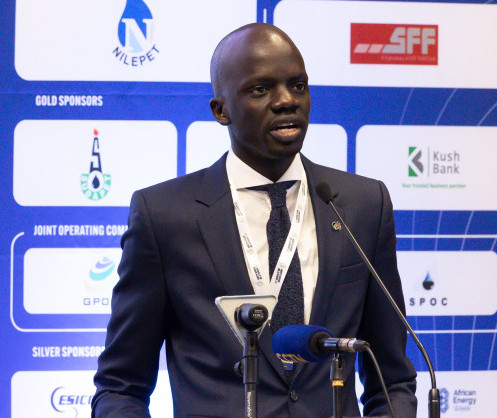Speaking to Energy Capital & Power at the fifth edition of South Sudan Oil & Power 2022, Hon. Puot Kang Chol, South Sudan’s Minister of Petroleum, emphasized that South Sudan will play an instrumental role in driving energy-related investment and development across the East African region
Hon. Puot Kang Chol, South Sudan’s Minister of Petroleum, made clear the role the county plays as a gateway to doing business and driving development across the East African region. Speaking in an exclusive interview with the Energy Capital & Power team, the Minister provided insight into a new deal signed with Djibouti and how the country is well positioned to kickstart new growth across the regional energy sector.
How does South Sudan serve as a gateway to East Africa and what message have you been driving at SSOP 2022?
Our objectives are to diversify the sector and invite people from all over the world to invest directly and indirectly in the Republic of South Sudan
South Sudan is a gateway for two reasons. Firstly, we are the biggest producer in the region and we are pioneers in the region. We have what it takes to advise, not only people in our region, but beyond. With this, we would like to invite the world, talk to everyone, and say that South Sudan is the place to be. I believe we are now more stable than ever before. We now have the opportunity to invite investors to South Sudan. The number of blocks we have in South Sudan, no one else has them in the region. We have done a licensing round for 14 blocks, and those blocks will be available, all 14 of them. Our objectives are to diversify the sector and invite people from all over the world to invest directly and indirectly in the Republic of South Sudan. Through us, our brothers and sisters from all over the region will be able to connect with the rest of the world.
On the first day of SSOP 2022 South Sudan signed a deal with Djibouti. What is the significance of this deal and can we expect any other deals with your East African counterparts?
South Sudan is a landlocked country and so far, we have been using Port Mombasa and Port Sudan. We also have felt it is important for us to use Port Djibouti because our biggest production is bordering Ethiopia, and now that we have Block B2 coming up, it will be important for us to open up Djibouti Port so that when we have goods that are needed for operation in the oilfields, we can easily get them from Djibouti. As a result, we have signed this agreement and have also acquired land in Djibouti that will be used for goods meant for the operation in the oilfields. The deal signed is a good deal for South Sudan.
What message do you have for investors interested in South Sudanese opportunities?
I have three messages. Firstly, South Sudan is peaceful, stable and therefore, the environment is conducive for investment. Secondly, we have better opportunities than anywhere else. We are the youngest population in the world, and over 90% in every sector remains untapped. Coming to South Sudan and doing business here is the right place to be. Thirdly, in the oil sector, we have opportunities. We have blocks available as well as existing blocks for those wanting to do enhanced oil recovery or improved oil recovery. We would want them to grab the opportunities because it does not exist anywhere else. South Sudan is the place to be and the place to do business.
![]()




